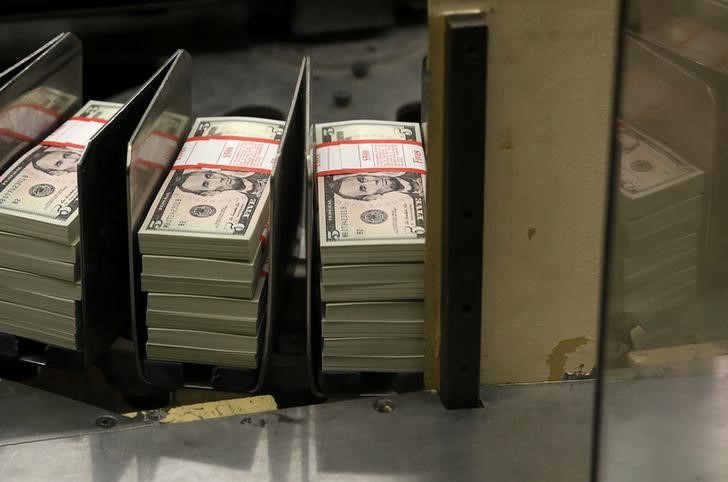(Bloomberg) -- The Hong Kong dollar carry trade copped a body blow in June.
That’s because the cost to borrow the city’s currency surged, rising above the income a trader can expect on U.S. dollars for the first time in years. Companies are hoarding cash to pay quarterly dividends and a huge share sale may lock up funds, making money in Hong Kong more expensive. By contrast, U.S. interest rates are dropping as the Federal Reserve prepares to ease monetary policy.
It all added up to a rally that pushed the Hong Kong dollar to its strongest in seven months. With interbank liquidity remaining low after the city’s de facto central bank spent billions defending the peg, local rates will probably hover at elevated levels in July even when seasonal pressures ease, according to Carie Li, an economist at OCBC Wing Hang Bank Ltd.
“Given the low aggregate balance, these tightening events will keep market players cautious and prompt them to continue hoarding cash,” she said.
Li said interbank lending rates, known as Hibor, could remain relatively high this month, with one- and three-month tenors staying above 2%. One-month Hong Kong dollar Hibor stood at 2.53% on Friday and the three-month rate was 2.46%, both near the highest in a decade. Hong Kong’s financial markets were shut for a holiday Monday.
Online retail giant Alibaba (NYSE:BABA) Group Holding Ltd. is said to have filed for a Hong Kong listing that could raise as much as $20 billion, which would make it the financial hub’s biggest share sale since 2010. The Asia-Pacific arm of Anheuser-Busch InBev is also gauging demand for a $5 billion offering. This squeezes liquidity as investors -- presented with a chance to own a piece of China’s largest company or the world’s biggest brewer -- set aside cash.
The Hong Kong dollar carry trade was a steady winner for years as investors borrowed the currency cheaply to invest in higher-yielding American assets. It became less of a sure thing after the Hong Kong Monetary Authority started buying the local dollar to defend the peg from April 2018.
The city’s aggregate balance now stands at just HK$56 billion, down from HK$180 billion before the HKMA began intervening. The HKMA, which effectively imports U.S. monetary policy, said in June that a higher Hibor and a stronger local dollar are “consistent” with the currency peg system, though uncertainty over the Fed’s policy was increasing.
Irene Cheung, a strategist at Australia & New Zealand Banking Group Ltd., says the Hong Kong dollar is unlikely to strengthen far beyond 7.8 per greenback. That’s the midpoint of its 7.75-7.85 trading band and hasn’t been breached since September.
“Watch 7.80, which is a key support,” she said. “Do leave some room to add if USD/HKD breaks 7.80.”
To contact Bloomberg News staff for this story: Claire Che in Beijing at yche16@bloomberg.net
To contact the editors responsible for this story: Sofia Horta e Costa at shortaecosta@bloomberg.net, Will Davies
©2019 Bloomberg L.P.
